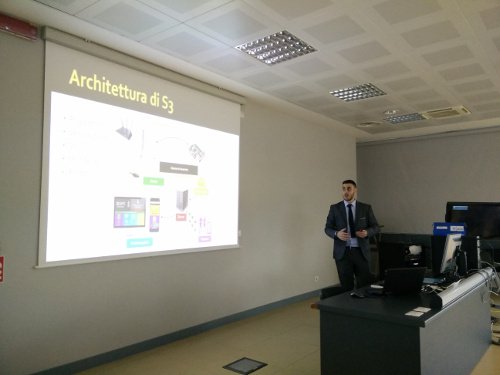Sustainability of a university campus, and in particular energetic sustainability, relies on the efficiency and smartness of the energy systems, as well as the behavior of campus users (student, faculty, staff). Much literature is available about the solutions for creating smart buildings, and improving energy efficiency and co-generation. Likewise, social studies of behavior in smart homes and cities are also available, but the two aspects have seldom been considered jointly.
The thesis of Roberto Marturano, discussed on July 2017, explores this topic and develops an integrated system for a study room in our university. The Smart Study Room (S3) system is able to gather information from various building-related sensors and from crowd sensors, and apply data fusion to construct a comprehensive vision of what happens in a study room. Such knowledge can be used to provide, with a Living Lab methodology, selected information back to the system users, in order to (a) improve their awareness and (b) stimulate behavioral changes.
The S3 system has been evaluated through a prototype implementation and the installation in some actual space within the campus, namely a laboratory (before) and the meeting room in which Roberto discussed his thesis. In this way, a complete - yet preliminary - evaluation of the system and of the conveied information has been conducted, with appreciable results.


